Media | Articles
This Retro Model T Roadster Captures the Spirit of Salt Racing
You’ll run into all sorts of interesting cars in Wendover during Bonneville Speed Week. Naturally, there are race cars of every shape and size on the salt, but nearly as many interesting hot rods show up in town, their drivers there to pay respect to the hallowed racing ground nearby. We spotted this eye-catching Track T at a Speed Week car show and had to wait in line to talk to the car’s caretaker, Benny Bennett, to get the story on the race-inspired ride.
In the early 2000s, members of the Slo Poks Car Club, in Vancouver, Washington, helped fellow member and accomplished drag racer Nick Nicholson gather up the parts necessary to build the car. The concept was to create a street-driving version of the race car that Nicholson would have loved to have campaigned in the late 1950s or early ’60s, given the chance. The late land speed racer Bruce Geisler, a staple of Southern California Timing Association (SCTA) events for decades, was one of many who helped secure the right speed parts and decals to fit the late ’50s vibe.
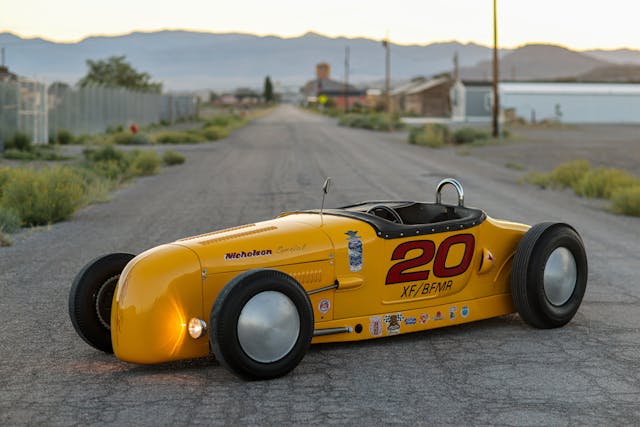
Eventually, Nicholson retired from racing his other cars, and the roadster, which had been sitting for years, was difficult to climb into, anyway. Bennett told Nicholson that he’d relish the opportunity to be the car’s “caregiver” and ensured him it would stay true to his vision. Bennett, a 24-year member of the Slo Poks himself, took over that role in 2018. “I absolutely loved the car, the way it sits, how it looks,” Bennett explains. He’s not alone, as the roadster constantly had a group clustered around it in Wendover, admiring the details and asking questions. After purchasing the car, Bennett spent several months going through it and making it roadworthy.
Perhaps the roadster’s biggest draw is what’s under the hood. It wouldn’t be strange to see a 255-cube flathead V-8 powering a salt racer of the era, but this vintage flathead goes above and beyond with its induction and its cooling. A crank-driven 4-71 blower is mounted on its side in the nose of the car, where you’d normally expect to find a radiator. Driven 1:1 off the crankshaft, the blower pulls air through two Stromberg carbs on the driver’s side and pushes air and fuel out the passenger side and into a plenum that has two tubes, one feeding each cylinder bank of the V-8. The flathead uses an Isky cam and a set of ported Edelbrock heads to make better use of the boost.
Of course, with no radiator up front, Nicholson had to get crafty with the cooling system. The V-8’s water pumps are turned around to move water to the back of the car, where a trunk-mounted aluminum radiator kicks out the heat. From there, an electric pump pushes water forward to the engine. Even with 14 gallons of coolant in the system and a more modern radiator, the arrangement isn’t perfect, but Bennett has modified it to be more effective than its original iteration, which was what led to the car sitting for so long before his acquisition.
Now that the bugs have been worked out, Bennett can drive the roadster, even in the Arizona heat of Lake Havasu City, where he has relocated since the purchase. In the summer, the car can reach 185 degrees. “It’s pretty warm for a flathead,” Bennett admits. “This one’s been cooked a couple of times.” When he takes the car out, its racy nature naturally has onlookers asking how fast it is, but Bennett isn’t concerned with finding that answer. Rather, he’s more interested in “holding onto a piece of my car brotherhood history.” Besides that, the powerful flathead would probably get itself into overheating trouble if it were asked to go wide-open for miles at a time. “I don’t drive it like I stole it,” Bennett says. That doesn’t mean that it’s not fun, however. “It’s very visceral and straightforward. Lots of feedback.”
Passersby are naturally drawn to the engine, but Nicholson also put some ingenious engineering into the suspension. Both front and rear use torsion bars, pirated from a pair of Mopars. The torsion bars make for compact packaging and would have been cutting edge for the early ’60s racer this car was built to embody. The torsion bar connects to the radius rods, and you can spot it in the photo above; it’s the polished rectangular bar.
Bennett says that the car was an expensive paperweight for a few years, that it puked out all its coolant on the mile-long drive to his home after he bought it, and that even after some tinkering and problem-solving, it can be temperamental. Still, he has no regrets. “I want to tell the story,” Bennett says, and be a good steward while it’s in his possession. “A lot of times, cars like this get sold and the mission is lost. Nick’s goal was for people to look at the car and be able to reminisce on that era of racing,” says Bennett. It has succeeded in that regard. Although he’s had offers to purchase the car, he’s still enjoying being its caretaker, but eventually he hopes to pass it along to someone who shares the passion for preserving this homage to land speed racing’s past. Until then, Bennett will keep bringing the roadster to Speed Week, where he hopes to get out on the racing surface this year, get some salt in his teeth, and enjoy the car as it was meant to be.
***
Marketplace
Buy and sell classics with confidence
Check out the Hagerty Media homepage so you don’t miss a single story, or better yet, bookmark it. To get our best stories delivered right to your inbox, subscribe to our newsletters.
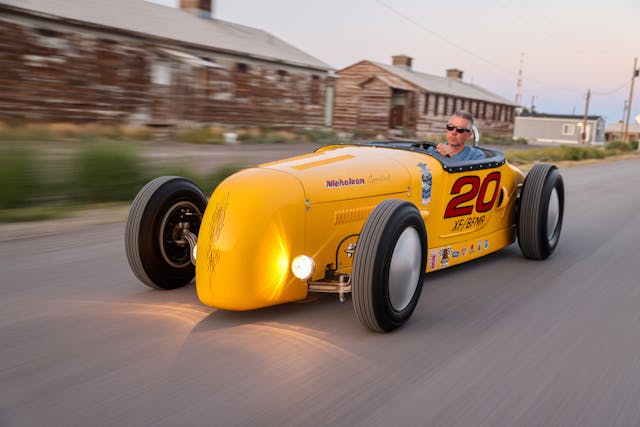

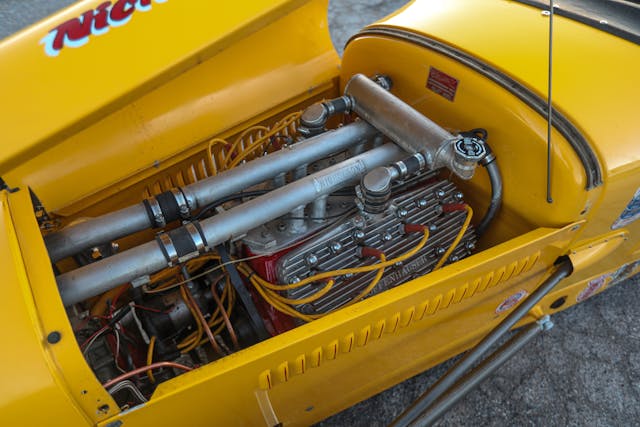

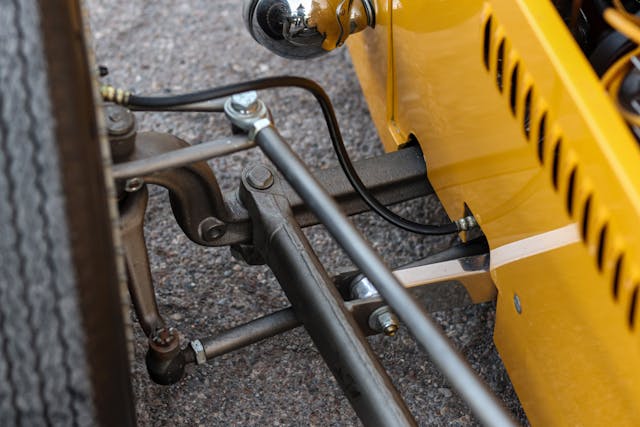
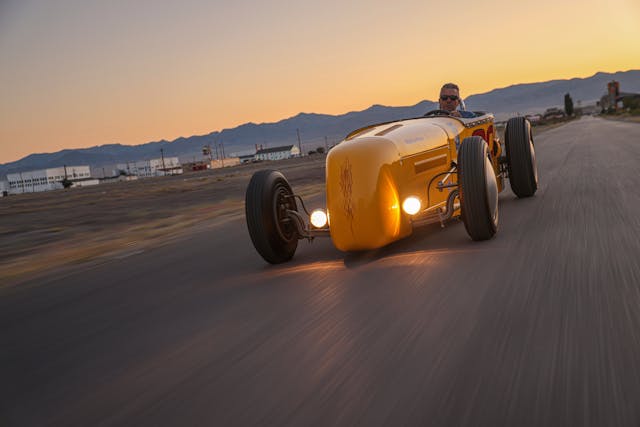
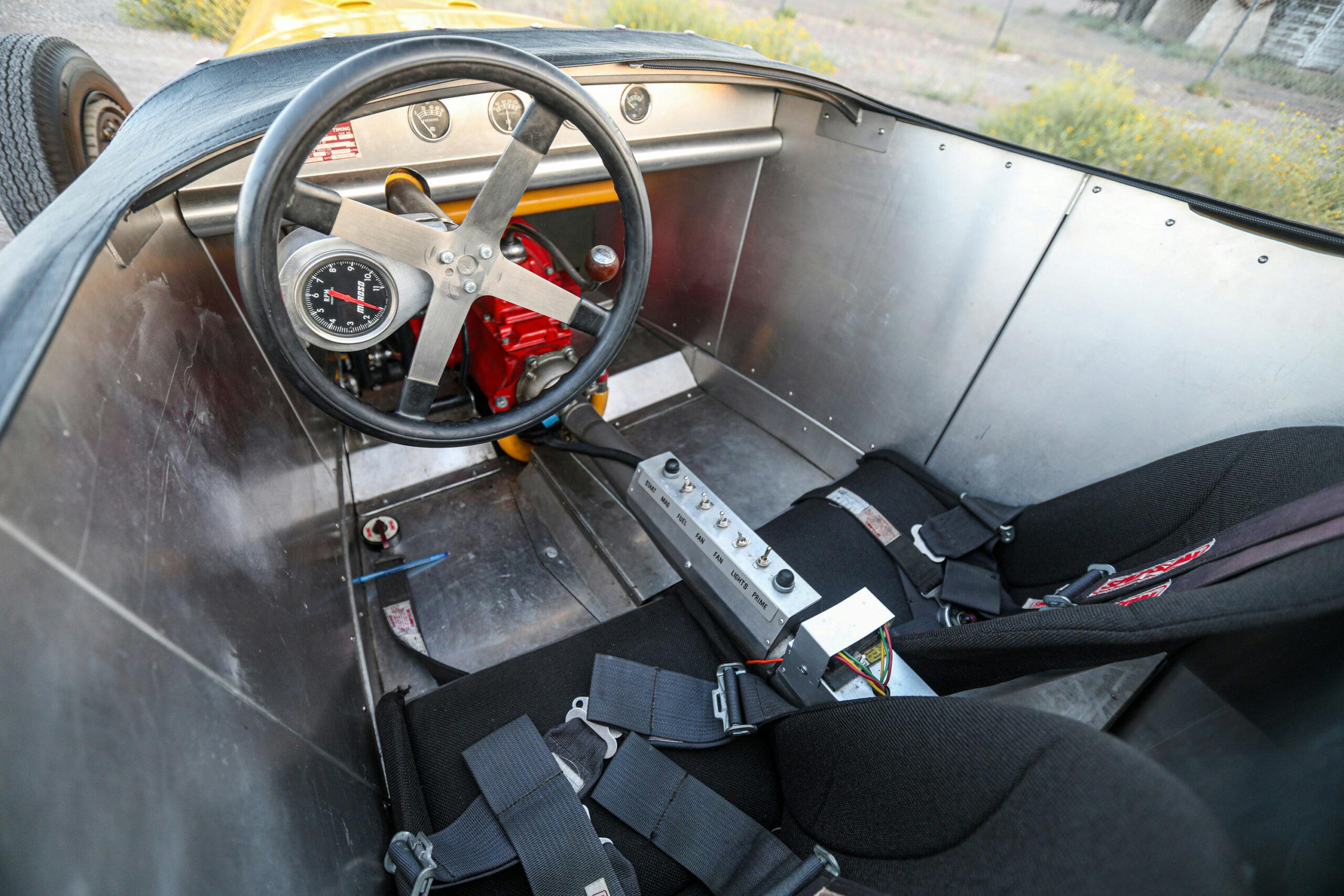













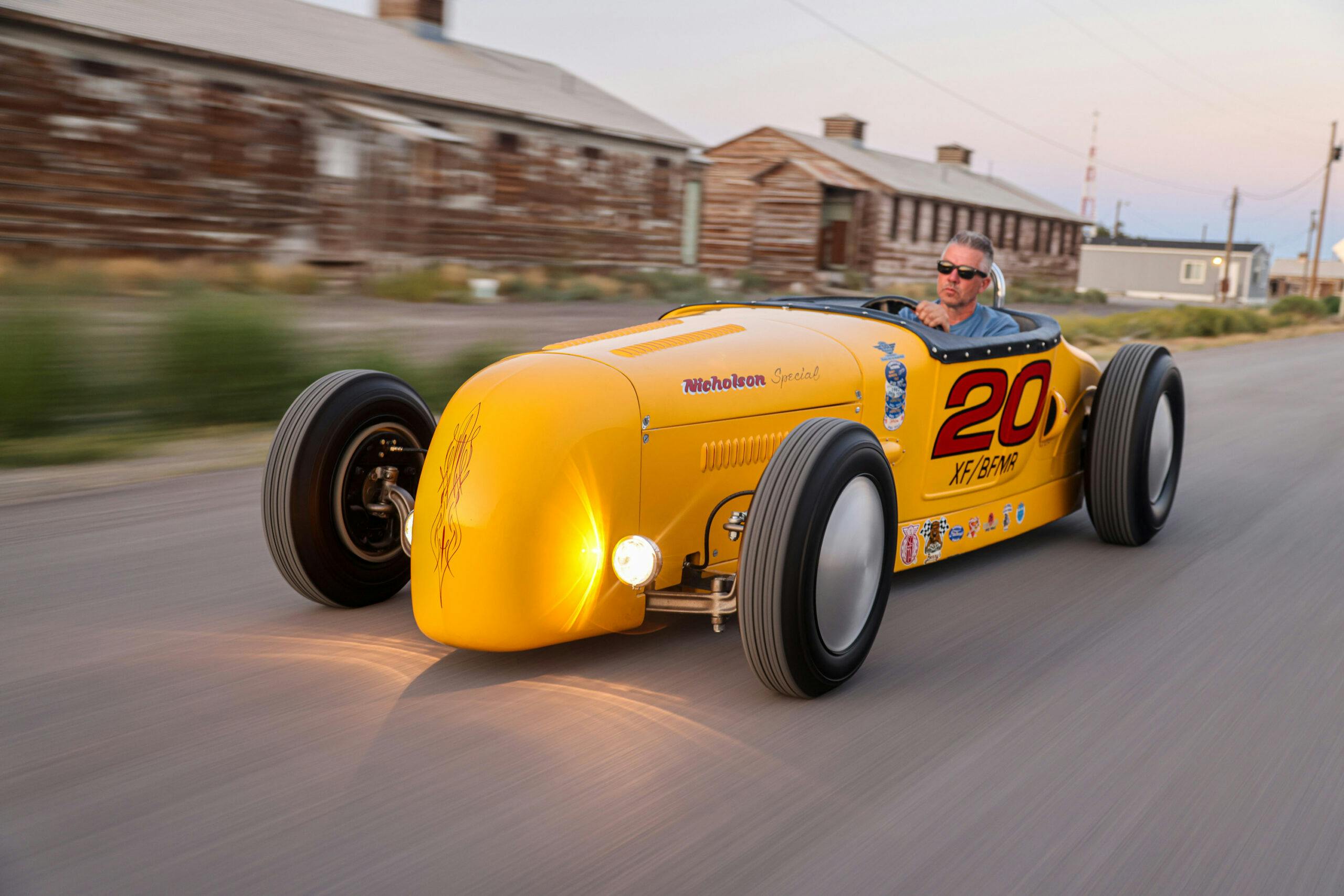
Nice article about a very cool car but I don’t think even Vic Edelbrock could port those heads.
@Tinkerah, you are correct because the heads are Offenhauser
Agree!
Maybe he ported the water jackets!
It’s a pretty crazy car. I love what went into it.
Beautiful car-especially the engine! Flatheads forever!
What a beautiful piece of rolling art! Nicely conceived and nicely executed.
GREAT JOB BENNY FROM BYRON JACOBUS. 0 SO KOOL. VERY PROUD OF YOU.
What a complicated, ingenious build! From the nose mounted blower and carburetors (wonder what amount of boost) to the rear mounted radiator I’m really impressed. Can’t forget the suspension either. Would love to have something like this. Love the sound of an old flatty – nothing else like it.
a piece of history in the right hands. iT AIN’T FOR SITTIN ITS FOR GITTIN!!!!!
GREAT CAR. As a 3 decade long (at least) Bonneville attendee, it just makes me smile Big Time. WELL DONE!!